Best Sustainable Phones: Eco-Friendly Buyer's Guide and Analysis.
- emissions reports
- recycled rare earth elements
- eco packaging
- recycled plastics
- 61 kg CO2e CO2e
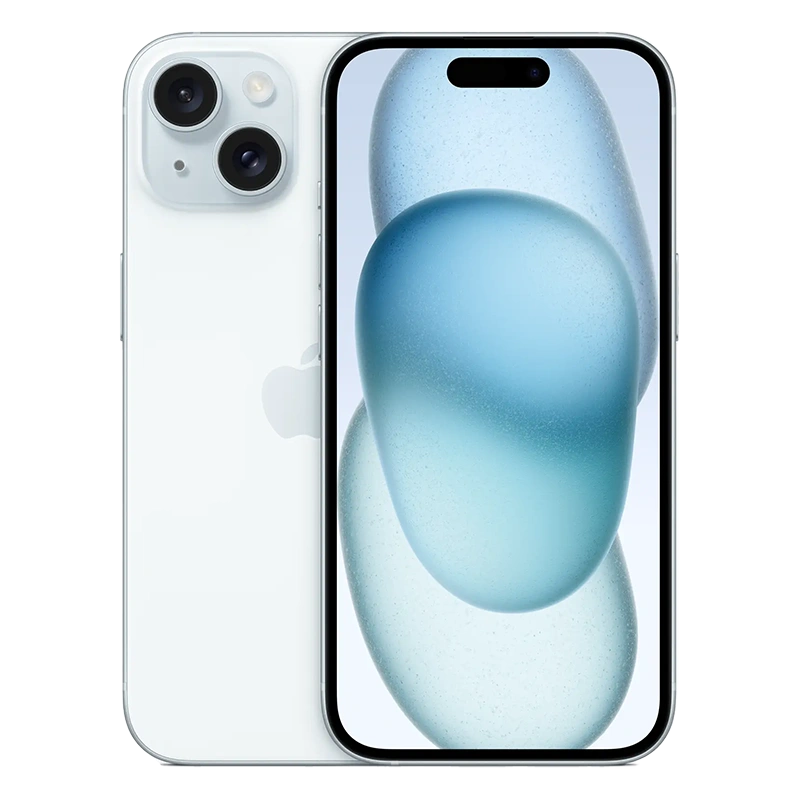
iPhone 15 Plus
Recycled Materials
Cobalt
100% recycled cobalt in the battery.
Plastics
35% or more recycled plastic in multiple components (includes upcycled plastic bottles in antenna lines). Recycled content claims verified by independent third party (ISO 14021).
Aluminum
75% recycled aluminum in the enclosure. Carbon savings quantified.
Tin
100% recycled tin in the solder of multiple printed circuit boards. Apple requires 100% of identified tin smelters/refiners to participate in third-party audits.
Steel
100% recycled tungsten in Taptic Engine (99% of total tungsten). 100% recycled rare earth elements in all magnets (100% of total rare earth elements). Dave robot disassembles Taptic Engine to recover tungsten and rare earth elements.
Copper
100% recycled copper foil in main logic board and MagSafe inductive charger. 100% recycled copper wire in Taptic Engine.
Ocean Bound Plastic
no information given
Packaging
Recycled Packaging
99% fiber-based packaging with 68% recycled content. All virgin wood fiber responsibly sourced. Designed to eliminate plastics, increase recycled content, use less packaging overall. Aims for 100% plastic-free by 2025.
Recycled Fibre
99% fiber-based packaging with 68% recycled content. All wood fiber is recycled or from responsibly managed forests.
Plastic Free Packaging
99% fiber-based packaging, no plastic (except adhesives, inks, coatings). Aims for 100% plastic-free by 2025.
Longevity & Upgrades
Durability
Ceramic Shield, two times tougher than any other smartphone glass. IP68 water and dust resistance.
Longevity
Designed to be energy efficient, long-lasting, and safe. Regular software updates. Network of authorized repair professionals. Aims to reduce reliance on primary materials. Offers Apple Trade In for product return.
Energy & Emissions
Energy
Uses at least 47% less energy than standard. Employs power-efficient components. Builds clean energy projects. Over 30% of manufacturing electricity from supplier clean energy projects. Aims for 100% clean electricity for manufacturing/product use. Power adapter efficiency: 87.49-88.06%. No-load: 0.04W.
Carbon Neutral
Goals
Apple and all products aim to be carbon neutral by 2030. Substantial decarbonization. Applies carbon removal credits. GHG reductions achieved for iPhone 15 Plus is 25%.
- 75 kg CO2e (256GB) CO2e
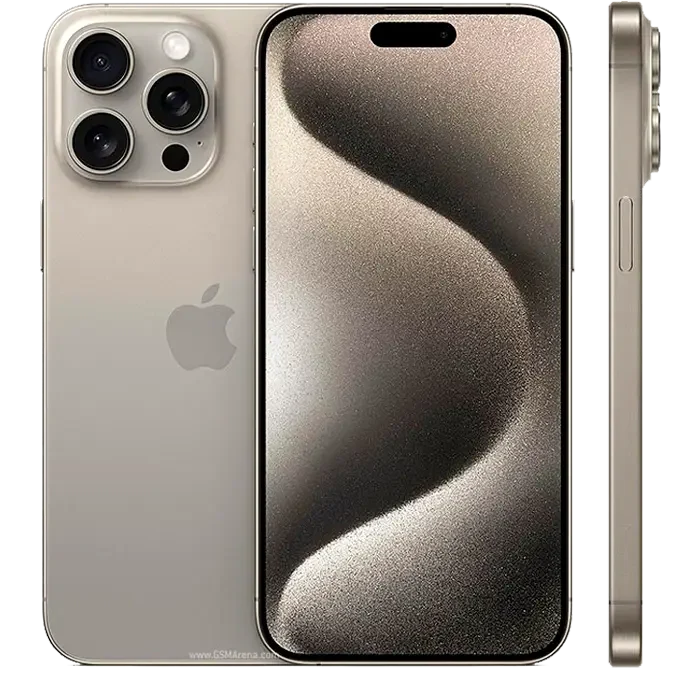
iPhone 15 Pro Max
Recycled Materials
Cobalt
100% recycled cobalt in the battery.
Plastics
35% or more recycled plastic in multiple components. Recycled content claims verified by an independent third party (ISO 14021).
Aluminum
100% recycled aluminum in the internal structural frame. Carbon savings quantified.
Tin
100% recycled tin in the solder of multiple printed circuit boards. Apple requires 100% of identified tin smelters/refiners to participate in third-party audits.
Steel
100% recycled tungsten in Taptic Engine (99% of total tungsten). 100% recycled rare earth elements in all magnets (100% of total rare earth elements). Dave robot disassembles Taptic Engine to recover tungsten and rare earth elements.
Copper
100% recycled copper foil in main logic board and MagSafe inductive charger. 100% recycled copper wire in Taptic Engine.
Ocean Bound Plastic
no information given
Packaging
Recycled Packaging
99% fiber-based packaging with 67% recycled content. All virgin wood fiber in packaging comes from responsibly managed forests. Designed to eliminate plastics, increase recycled content, use less packaging overall. Aims for 100% plastic-free by 2025.
Recycled Fibre
99% fiber-based packaging with 67% recycled content. All wood fiber is recycled or from responsibly managed forests.
Plastic Free Packaging
99% fiber-based packaging, no plastic (except adhesives, inks, coatings). Aims for 100% plastic-free by 2025.
Longevity & Upgrades
Durability
Ceramic Shield, two times tougher than any other smartphone glass. IP68 water and dust resistance.
Longevity
Designed to be energy efficient, long-lasting, and safe. Regular software updates. Network of authorized repair professionals. Aims to reduce reliance on primary materials and focus on longevity. Offers Apple Trade In for product return.
Energy & Emissions
Energy
Uses at least 48% less energy than standard. Employs power-efficient components. Builds clean energy projects. Over 38% of manufacturing electricity is sourced from supplier clean energy projects. Aims for 100% clean electricity for manufacturing/product use. Power adapter efficiency: 87.49-88.06%. No-load: 0.04W.
Carbon Neutral
Goals
Apple and all products aim to be carbon neutral by 2030. Substantial decarbonization. Applies carbon removal credits.
- 66 kg CO2e (128GB) CO2e
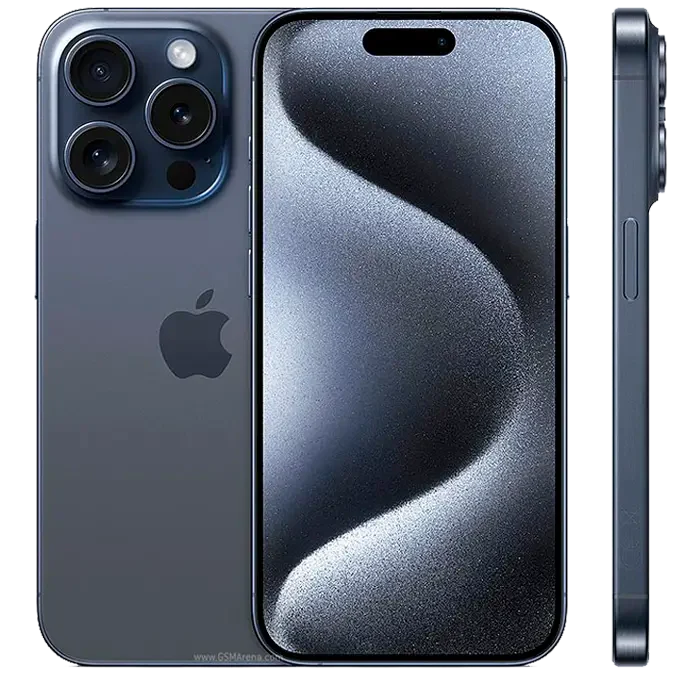
iPhone 15 Pro
Recycled Materials
Cobalt
100% recycled cobalt in the battery.
Plastics
35% or more recycled plastic in multiple components. Recycled content claims verified by independent third party (ISO 14021).
Aluminum
100% recycled aluminum in internal structural frame. Carbon savings quantified.
Tin
100% recycled tin in the solder of multiple printed circuit boards. Apple requires 100% of identified tin smelters/refiners to participate in third-party audits.
Steel
100% recycled tungsten in Taptic Engine (99% of total tungsten). 100% recycled rare earth elements in all magnets (100% of total rare earth elements). Dave robot disassembles Taptic Engine to recover tungsten and rare earth elements.
Copper
100% recycled copper foil in main logic board and MagSafe inductive charger. 100% recycled copper wire in Taptic Engine.
Ocean Bound Plastic
no information given
Packaging
Recycled Packaging
99% fiber-based packaging with 67% recycled content. All virgin wood fiber responsibly sourced. Designed to eliminate plastics, increase recycled content, use less packaging overall. Aims for 100% plastic-free by 2025.
Recycled Fibre
99% fiber-based packaging with 67% recycled content. All wood fiber is recycled or from responsibly managed forests.
Plastic Free Packaging
99% fiber-based packaging, no plastic (except adhesives, inks, coatings). Aims for 100% plastic-free by 2025.
Longevity & Upgrades
Durability
Ceramic Shield, two times tougher than any other smartphone glass. IP68 water and dust resistance.
Longevity
Designed to be energy efficient, long-lasting, and safe. Regular software updates. Network of authorized repair professionals. Aims to reduce reliance on primary materials and focus on longevity. Offers Apple Trade In for product return.
Energy & Emissions
Energy
Uses at least 48% less energy than standard. Employs power-efficient components. Builds clean energy projects. Over 38% of manufacturing electricity from supplier clean energy projects. Aims for 100% clean electricity for manufacturing/product use. Power adapter efficiency: 87.49-88.06%. No-load: 0.04W.
Carbon Neutral
Goals
Apple and all products aim to be carbon neutral by 2030. Substantial decarbonization. Applies carbon removal credits. GHG reductions achieved for iPhone 15 Pro is 29%.
- 56 kg CO2e

iPhone 15
Recycled Materials
Cobalt
100% recycled cobalt in the battery.
Plastics
35% or more recycled plastic in multiple components (includes upcycled plastic bottles in antenna lines). Recycled content claims verified by independent third party (ISO 14021).
Aluminum
75% recycled aluminum in the enclosure. Carbon savings quantified.
Tin
100% recycled tin in the solder of multiple printed circuit boards. Apple requires 100% of identified tin smelters/refiners to participate in third-party audits.
Steel
100% recycled tungsten in Taptic Engine (99% of total tungsten). 100% recycled rare earth elements in all magnets (100% of total rare earth elements). Dave robot disassembles Taptic Engine to recover tungsten and rare earth elements.
Copper
100% recycled copper foil in main logic board and MagSafe inductive charger. 100% recycled copper wire in Taptic Engine.
Ocean Bound Plastic
no information given
Packaging
Recycled Packaging
99% fiber-based packaging with 68% recycled content. All virgin wood fiber responsibly sourced. Designed to eliminate plastics, increase recycled content, use less packaging overall. Aims for 100% plastic-free by 2025.
Recycled Fibre
99% fiber-based packaging with 68% recycled content. All wood fiber is recycled or from responsibly managed forests.
Plastic Free Packaging
99% fiber-based packaging, no plastic (except adhesives, inks, coatings). Aims for 100% plastic-free by 2025.
Longevity & Upgrades
Durability
Ceramic Shield, two times tougher than other smartphone glass. IP68 water and dust resistance.
Longevity
Designed to be energy efficient, long-lasting, and safe. Regular software updates. Network of authorized repair professionals. Aims to reduce reliance on primary materials. Offers Apple Trade In for product return.
Energy & Emissions
Energy
Uses at least 47% less energy than standard. Employs power-efficient components. Builds clean energy projects. Over 30% of manufacturing electricity from supplier clean energy projects. Aims for 100% clean electricity for manufacturing/product use. Power adapter efficiency: 87.49-88.06%. No-load: 0.04W.
Carbon Neutral
Goals
Apple and all products aim to be carbon neutral by 2030. Substantial decarbonization. Applies carbon removal credits. GHG reductions achieved for iPhone 15 is 28%.
- 60 kg CO2e
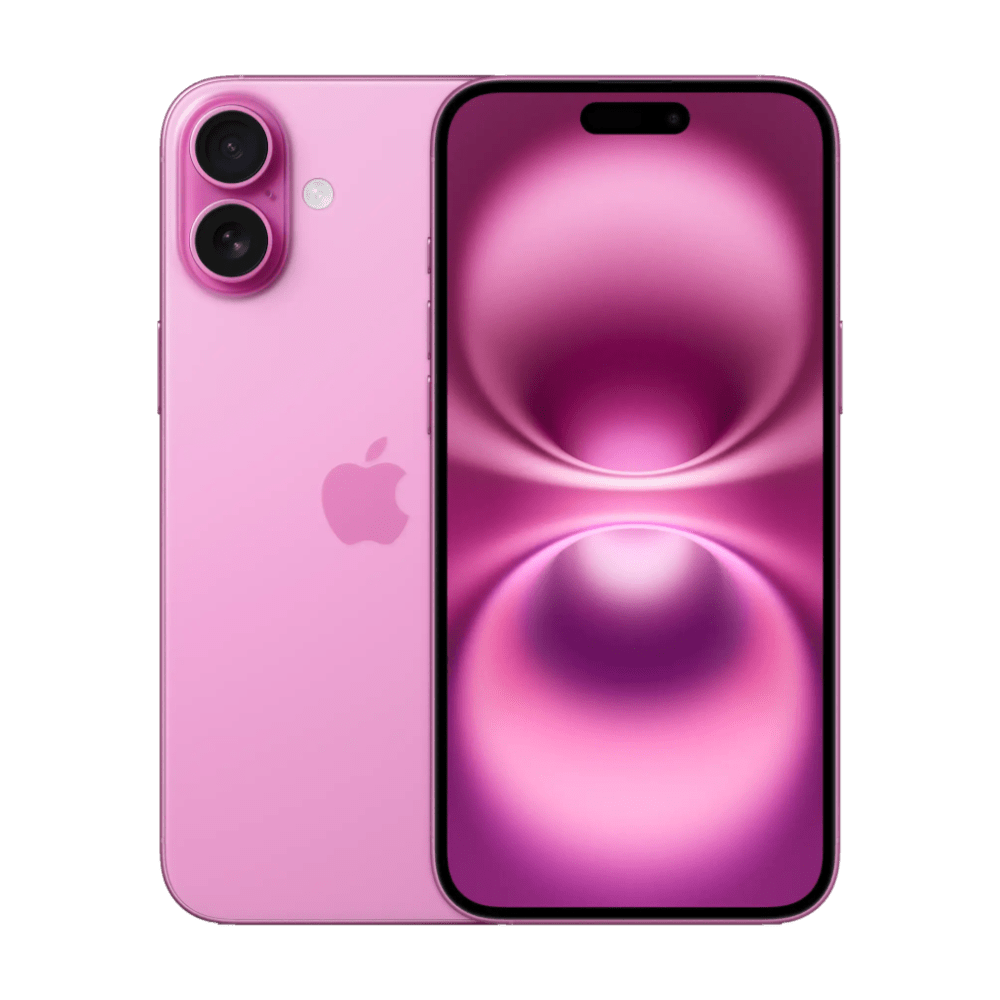
iPhone 16 Plus
Recycled Materials
Cobalt
100% recycled cobalt in the battery
Plastics
At least 50% recycled plastic in 20 components. 25% recycled content in antenna lines made from upcycled plastic bottles.
Aluminum
85% recycled aluminum in the enclosure. 100% recycled aluminum in the thermal sub structure.
Tin
100% recycled tin in solder of multiple printed circuit boards. By 2025, plan for 100% recycled tin soldering in all Apple-designed rigid and flexible printed circuit boards.
Steel
80% or more recycled steel in multiple components (Taptic Engine, speaker, small parts, display support plate).
Copper
100% recycled copper in multiple printed circuit boards, Taptic Engine wire, and inductive charger foil/wire.
Ocean Bound Plastic
Not specified
Packaging
Recycled Packaging
100% fiber-based. 64% or more recycled content. All wood fiber is recycled or from responsibly managed forests. Reduced overall volume by 8% compared to iPhone 15/Plus packaging.
Recycled Fibre
100% fiber-based packaging. 64% or more recycled content. All wood fiber is recycled or from responsibly managed forests.
Plastic Free Packaging
100% fiber-based packaging, no plastic (except inks, coatings, adhesives). Milestone toward removing plastics from packaging by 2025.
Longevity & Upgrades
Durability
Latest-generation Ceramic Shield, two times tougher than any other smartphone glass. IP68 water and dust resistance.
Longevity
Designed to be energy efficient, long-lasting. Regular software updates. Expanded access to safe, reliable, and secure repairs via AASPs. Hardware design changes to streamline battery replacement (75% faster).
Energy & Emissions
Energy
Uses at least 60% less energy than standard. Software and power-efficient components. Builds low-carbon energy projects. Over 30% of manufacturing electricity sourced from supplier low-carbon energy projects.
Carbon Neutral
Goals
Progress toward carbon neutral (reduced emissions by 30% against business-as-usual scenario). Working with suppliers to transition to 100% low-carbon electricity. Accounting for emissions from renewable energy infrastructure maintenance.
- 74 kg CO₂e (256GB) CO2e
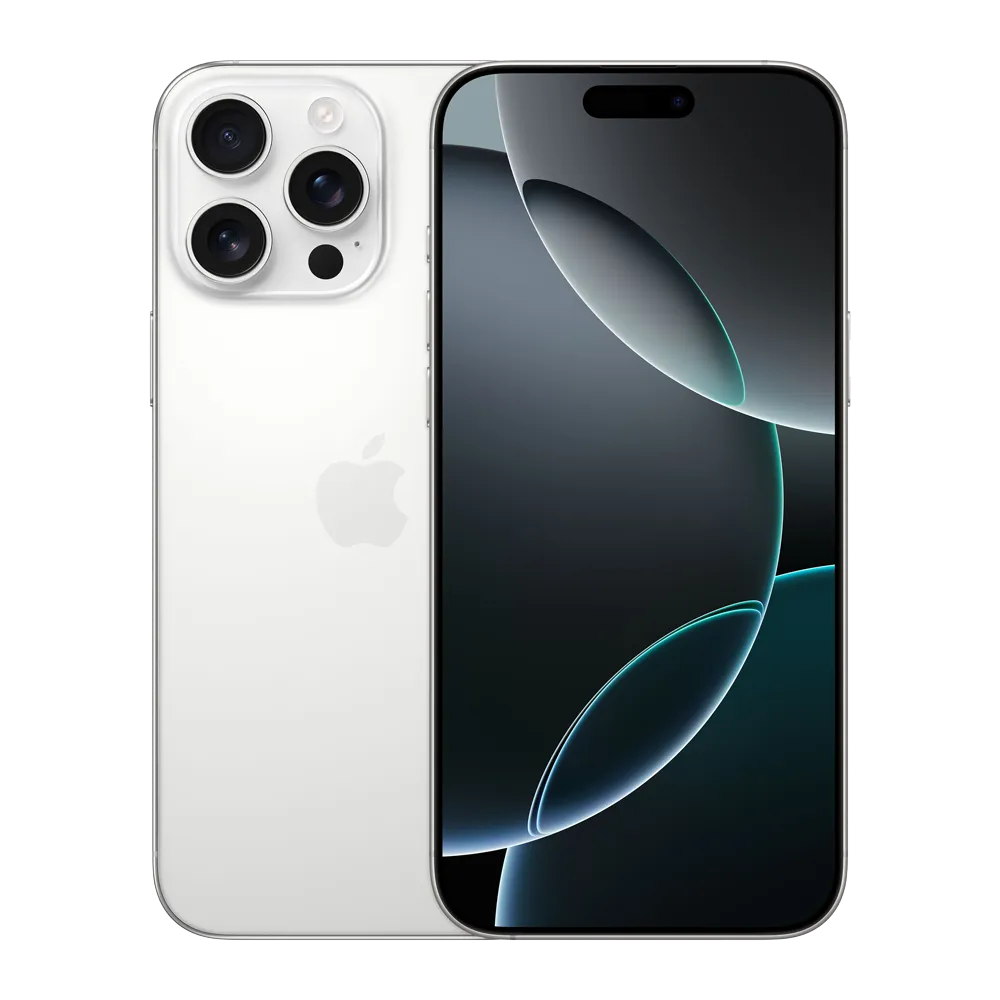
iPhone 16 Pro Max
Recycled Materials
Cobalt
100% recycled cobalt in the battery
Plastics
At least 50% recycled plastic in 14 components.
Aluminum
100% recycled aluminum in the internal structural frame and thermal sub structure.
Tin
100% recycled tin in solder of multiple printed circuit boards. By 2025, plan for 100% recycled tin soldering in all Apple-designed rigid and flexible printed circuit boards.
Steel
80% or more recycled steel in multiple internal components (Taptic Engine, speaker, PCBs, display support plate).
Copper
100% recycled copper in multiple printed circuit boards, Taptic Engine wire, and inductive charger foil/wire.
Ocean Bound Plastic
Not specified
Packaging
Recycled Packaging
100% fiber-based. 66% or more recycled content. All wood fiber is recycled or from responsibly managed forests. Reduced overall volume by about 6% compared to iPhone 15 Pro/Max packaging.
Recycled Fibre
100% fiber-based packaging. 66% or more recycled content. All wood fiber is recycled or from responsibly managed forests.
Plastic Free Packaging
100% fiber-based packaging, no plastic (except inks, coatings, adhesives). Milestone toward removing plastics from packaging by 2025.
Longevity & Upgrades
Durability
Latest-generation Ceramic Shield, two times tougher than any other smartphone glass. IP68 water and dust resistance.
Longevity
Designed to be energy efficient, long-lasting. Regular software updates. Expanded access to safe, reliable, and secure repairs via AASPs.
Energy & Emissions
Energy
Uses at least 54% less energy than standard. Software and power-efficient components. Builds low-carbon energy projects. 30% of manufacturing electricity sourced from supplier low-carbon energy projects.
Carbon Neutral
Goals
Progress toward carbon neutral (reduced emissions by 30% against business-as-usual scenario). Working with suppliers to transition to 100% low-carbon electricity. Accounting for emissions from renewable energy infrastructure maintenance.
- 66 kg CO2e
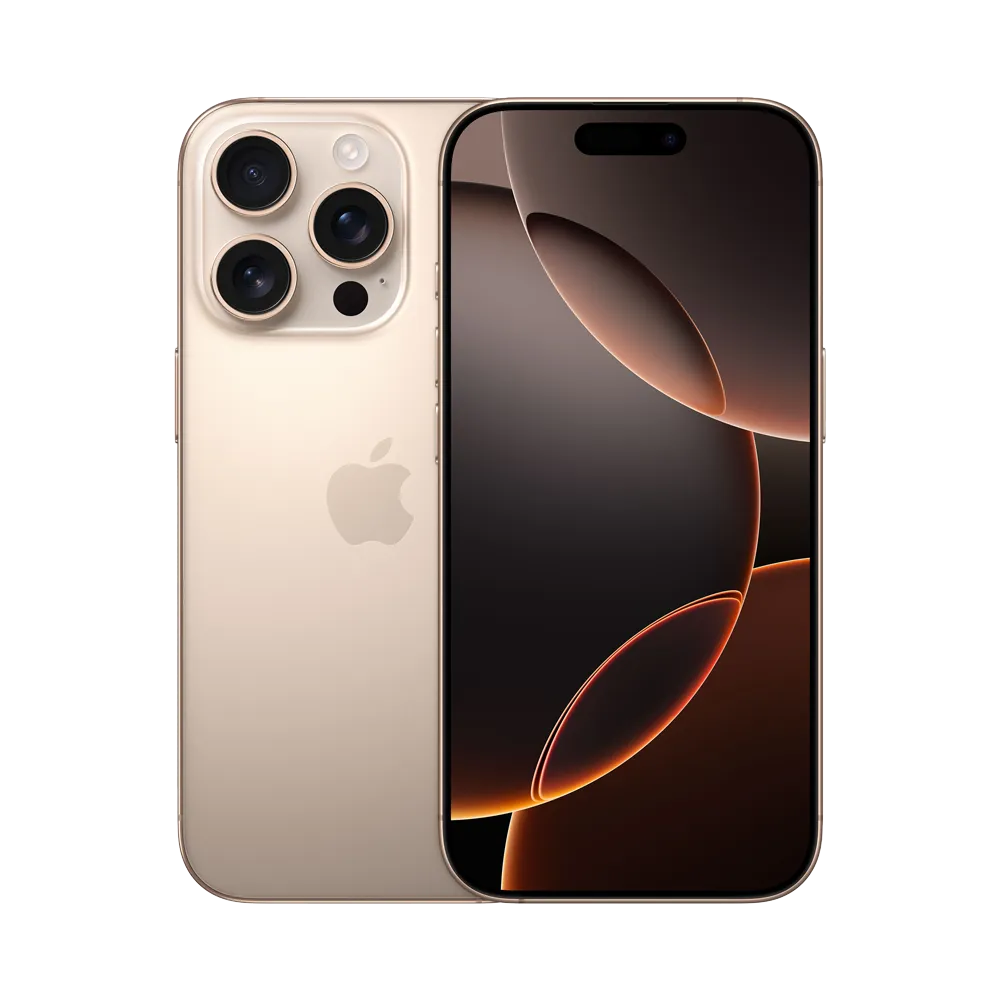
iPhone 16 Pro
Recycled Materials
Cobalt
100% recycled cobalt in the battery
Plastics
At least 50% recycled plastic in 14 components.
Aluminum
100% recycled aluminum in the internal structural frame and thermal sub structure.
Tin
100% recycled tin in solder of multiple printed circuit boards. By 2025, plan for 100% recycled tin soldering in all Apple-designed rigid and flexible printed circuit boards.
Steel
80% or more recycled steel in multiple internal components (Taptic Engine, speaker, PCBs, display support plate).
Copper
100% recycled copper in multiple printed circuit boards, Taptic Engine wire, and inductive charger foil/wire.
Ocean Bound Plastic
Not specified
Packaging
Recycled Packaging
100% fiber-based. 66% or more recycled content. All wood fiber is recycled or from responsibly managed forests. Reduced overall volume by about 6% compared to iPhone 15 Pro/Max packaging.
Recycled Fibre
100% fiber-based packaging. 66% or more recycled content. All wood fiber is recycled or from responsibly managed forests.
Plastic Free Packaging
100% fiber-based packaging, no plastic (except inks, coatings, adhesives). Milestone toward removing plastics from packaging by 2025.
Longevity & Upgrades
Durability
Latest-generation Ceramic Shield, two times tougher than any other smartphone glass. IP68 water and dust resistance.
Longevity
Designed to be energy efficient, long-lasting. Regular software updates. Expanded access to safe, reliable, and secure repairs via AASPs.
Energy & Emissions
Energy
Uses at least 54% less energy than standard. Software and power-efficient components. Builds low-carbon energy projects. 30% of manufacturing electricity from supplier low-carbon energy projects.
Carbon Neutral
Goals
Progress toward carbon neutral (reduced emissions by 30% against business-as-usual scenario). Working with suppliers to transition to 100% low-carbon electricity. Accounting for emissions from renewable energy infrastructure maintenance.
- 56 kg CO2e
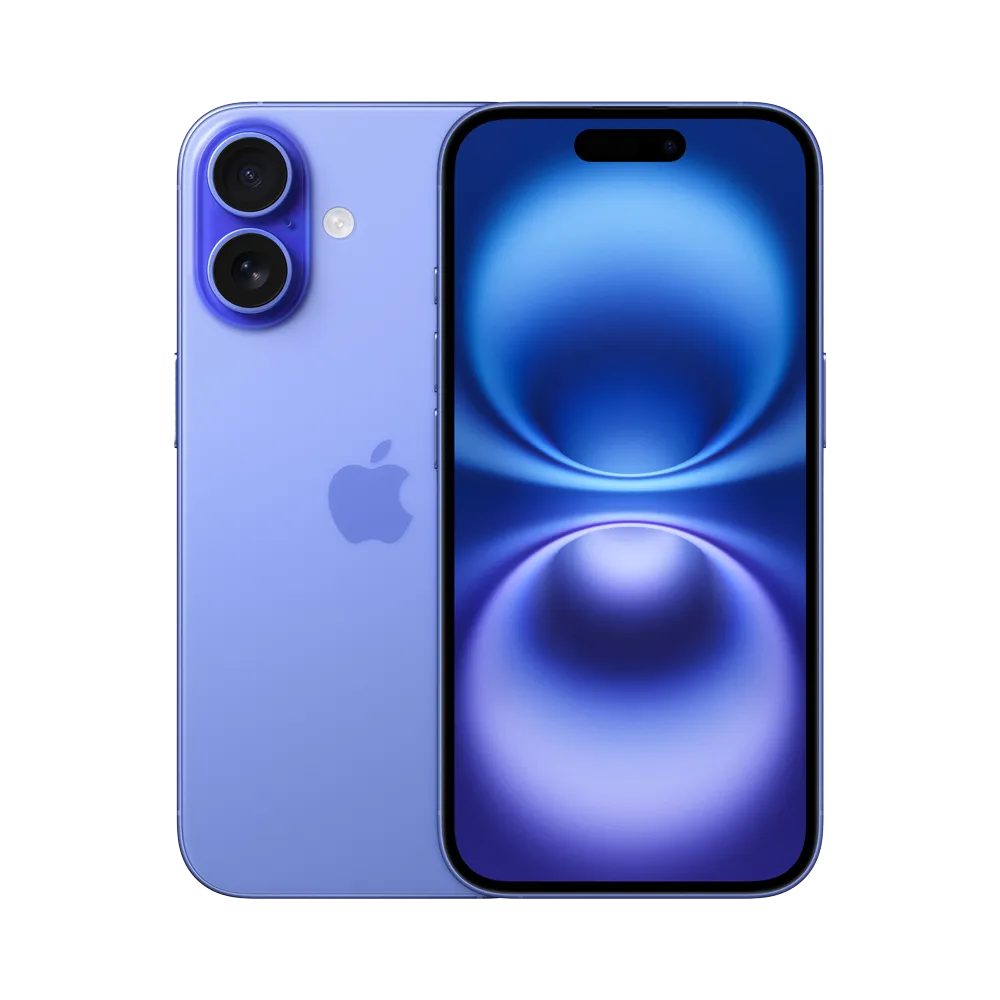
iPhone 16
Recycled Materials
Cobalt
100% recycled cobalt in the battery
Plastics
At least 50% recycled plastic in 20 components. 25% recycled content in antenna lines from upcycled plastic bottles.
Aluminum
85% recycled aluminum in the enclosure. 100% recycled aluminum in the thermal sub structure.
Tin
100% recycled tin in solder of multiple printed circuit boards. By 2025, plan for 100% recycled tin soldering in all Apple-designed rigid and flexible printed circuit boards.
Steel
80% or more recycled steel in multiple components (Taptic Engine, speaker, small parts, display support plate).
Copper
100% recycled copper in multiple printed circuit boards, Taptic Engine wire, and inductive charger foil/wire.
Ocean Bound Plastic
Not specified
Packaging
Recycled Packaging
100% fiber-based. 64% or more recycled content. All wood fiber is recycled or from responsibly managed forests. Reduced overall volume by 8% compared to iPhone 15/Plus packaging.
Recycled Fibre
100% fiber-based packaging. 64% or more recycled content. All wood fiber is recycled or from responsibly managed forests.
Plastic Free Packaging
100% fiber-based packaging, no plastic (except inks, coatings, adhesives). Milestone toward removing plastics from packaging by 2025.
Longevity & Upgrades
Durability
Latest-generation Ceramic Shield, two times tougher than any other smartphone glass. IP68 water and dust resistance.
Longevity
Designed to be energy efficient, long-lasting. Regular software updates. Expanded access to safe, reliable, and secure repairs via AASPs. Hardware design changes to streamline battery replacement (75% faster).
Energy & Emissions
Energy
Uses at least 60% less energy than standard. Software and power-efficient components. Builds low-carbon energy projects. Over 30% of manufacturing electricity from supplier low-carbon energy projects.
Carbon Neutral
Goals
Progress toward carbon neutral (reduced emissions by 30% against business-as-usual scenario). Working with suppliers to transition to 100% low-carbon electricity. Accounting for emissions from renewable energy infrastructure maintenance.
- 48 kg CO2e
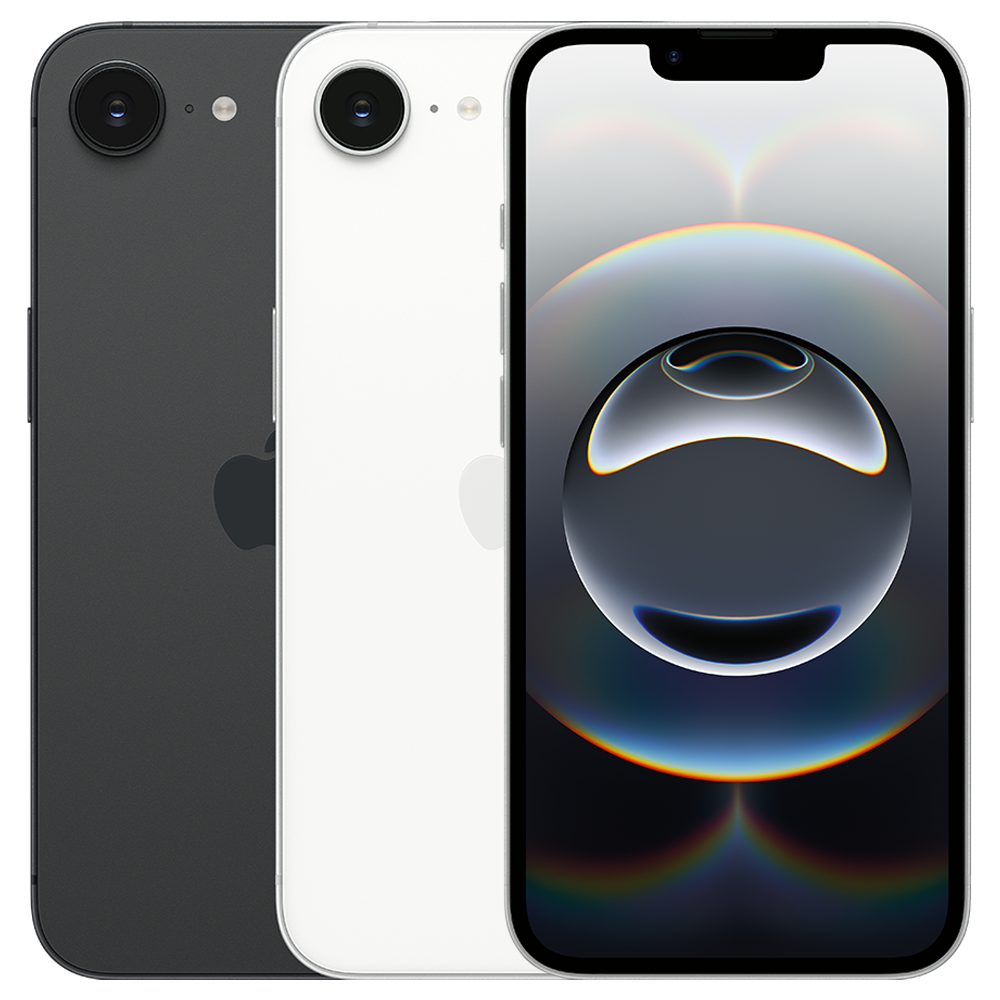
iPhone 16e
Recycled Materials
Cobalt
100% recycled cobalt in the battery
Plastics
50% or more recycled plastic in 15 components. 25% recycled content in the antenna lines made from upcycled plastic bottles. Recycled content claims for materials used in products have been verified by an independent third party to a recycled content standard that conforms to ISO 14021.
Aluminum
85% recycled aluminum in the enclosure. Calculates emissions savings from the use of recycled or low-carbon materials, currently quantifying savings from recycled aluminum, titanium, and stainless steel in the enclosure. Low-carbon materials refer to materials created using production techniques with reduced carbon impact, such as aluminum smelted with hydroelectricity.
Tin
100% recycled tin in the solder of all Apple-designed printed circuit boards. By the end of 2025, Apple plans to use 100% recycled tin soldering in all Apple-designed rigid and flexible printed circuit boards. Apple requires all identified tin smelters and refiners to participate in third-party audits.
Steel
80% or more recycled steel in multiple components, including the back glass support plate, speaker, and multiple small parts.
Copper
100% recycled copper in multiple printed circuit boards, 100% recycled copper wire in the Taptic Engine, and 100% recycled copper foil and wire in the inductive charger.
Ocean Bound Plastic
Not specified
Packaging
Recycled Packaging
100% fiber-based and contains 60% recycled content. 100% recycled or responsibly sourced wood fibers are used. Packaging is designed to remove plastic by the end of 2025. Packaging redesigned to be smaller and more efficient than iPhone 15 and iPhone 15 Plus boxes, reducing overall volume by 12 percent. Adhesives, inks, and coatings are excluded from plastic content and packaging weight calculations. Packaging aims to be plastic-free by the end of 2025.
Recycled Fibre
100% fiber-based and contains 60% recycled content. 100% recycled or responsibly sourced wood fibers are used in packaging. Responsible sourcing of wood fiber considers wood fibers to include bamboo.
Plastic Free Packaging
100% fiber-based and contains no plastic except for inks, coatings, and adhesives. This is a milestone toward the commitment to remove plastic from packaging by the end of 2025.
Longevity & Upgrades
Durability
Ceramic Shield. IP68 water and dust resistance. Tested under controlled laboratory conditions, resists submersion in up to 6 meters of fresh water for up to 30 minutes. Splash, water, and dust resistance are not permanent conditions and might decrease as a result of normal wear.
Longevity
Designed to be long-lasting. Provides regular software updates to keep devices current. Expanded access to safe, reliable, and secure repairs by increasing the number of Apple Authorized Service Providers (AASPs). Apple Trade In ensures devices have a long life or are recycled for free.
Energy & Emissions
Energy
Uses 60% less energy than the energy efficiency standard. Uses software and power-efficient components that intelligently manage power consumption. Builds low-carbon energy projects and engages customers to support grid decarbonization. Over 30% of manufacturing electricity is sourced from supplier low-carbon energy projects, supported by Apple’s Supplier Clean Energy Program. Power adapter efficiency: 87.49% (100V), 88.06% (115V), 87.81% (230V). Power adapter no-load: 0.04W. Low-carbon electricity refers to both renewable electricity and other fossil-free projects. Supplier Clean Energy Program helps suppliers transition electricity use to 100 percent renewable sources.
Carbon Neutral
Goals
Progress toward carbon neutral. Apple’s goal is for Apple and all products to be carbon neutral by 2030, reducing total carbon emissions by at least 75 percent against its 2015 baseline. It will apply credits from high-quality carbon removal projects to achieve carbon neutrality for remaining emissions. GHG reductions achieved are greater than 30%. Transitioning to 100% low-carbon electricity for Apple production is underway.
- 67 kg (256GB), 77 kg (512GB), 95 kg (1TB), 134 kg (2TB) CO2e
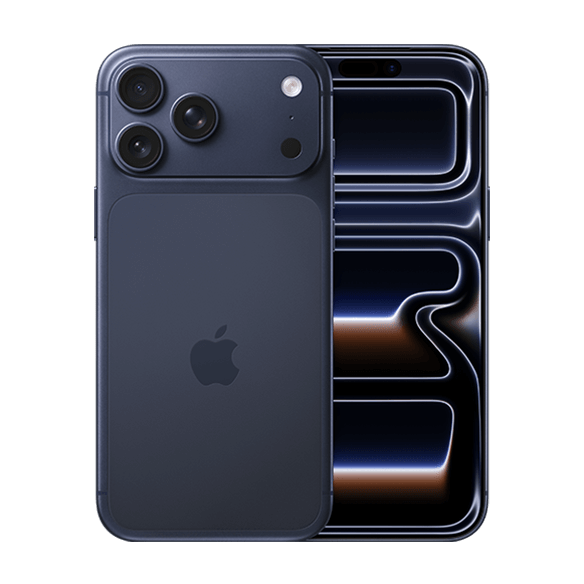
iPhone Pro Max
Recycled Materials
Cobalt
100% in battery
Plastics
Not specified
Aluminum
50% in enclosure
Tin
100% tin solder in all Apple-designed PCBs
Steel
80% in display support plate, speaker, receiver
Copper
100% in vapor chamber enclosure; 100% copper wire in Taptic Engine
Ocean Bound Plastic
Not specified
Packaging
Recycled Packaging
100% fiber-based; box redesign allows 25% more units per trip
Recycled Fibre
100% recycled or responsibly sourced fibers (includes bamboo)
Plastic Free Packaging
Adhesives/inks/coatings excluded from plastic calculation
Longevity & Upgrades
Durability
Ceramic Shield 2 (3× better scratch resistance), IP68 water/dust resistance
Longevity
Battery attachment redesigned for easier repairs; enhanced repair options for logic board and enclosure; longer software support; Apple Trade In extends life
Energy & Emissions
Energy
Uses 55% less energy than energy efficiency standard
Carbon Neutral
Goals
40% of manufacturing electricity from supplier renewable projects; progress toward 2030 carbon neutrality